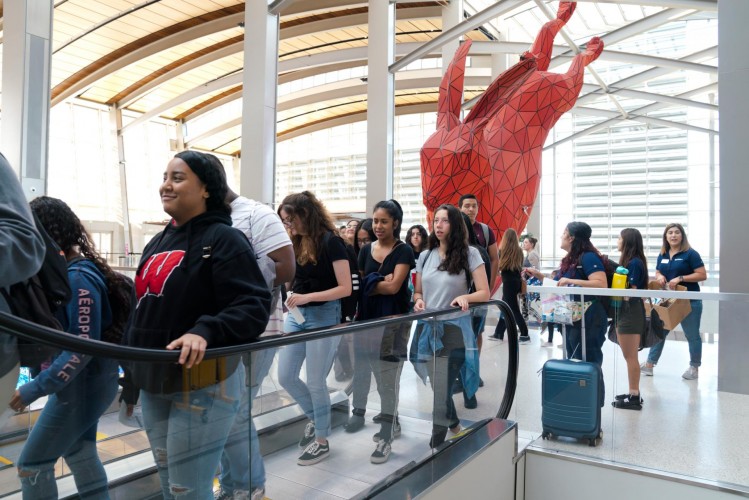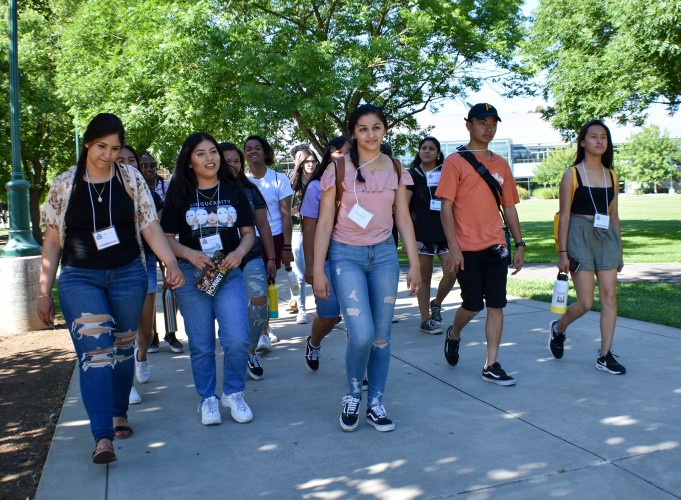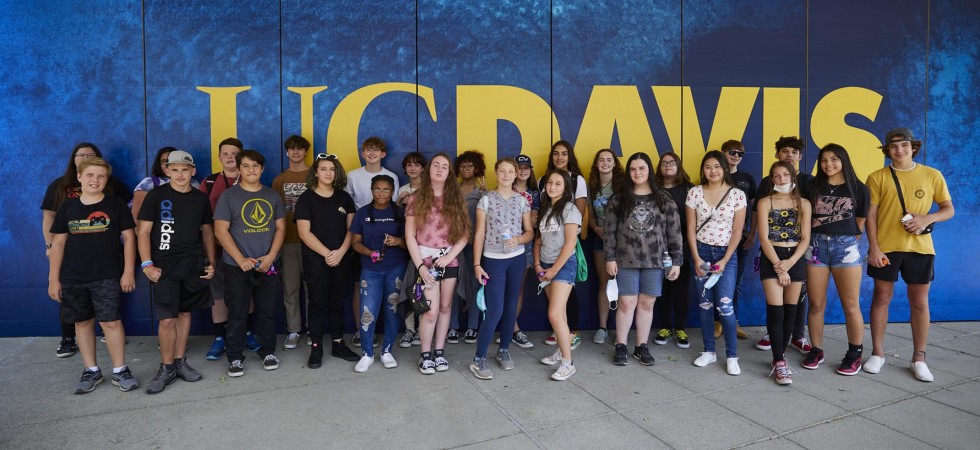Educational Talent Search Receives $4.8 Million in New Grants
The School of Education has received five federal Educational Talent Search (ETS) grants totaling $4.8 million over the next five years to support the continued and expanded work of ETS programs in Sacramento, Solano, Yolo and Shasta counties. The programs collectively serve 2,700 students in grades 6–12 who have academic potential, want to continue their education beyond high school, and need extra support and information to reach their goals. Two-thirds of these students are from families that have a demonstrated financial need and in which neither parent has completed a four-year college program.
“We’re helping low-income, first-generation high school students obtain a college degree,” said Sam Blanco III, Associate Director of Pre-College TRIO Programs. “Participants in ETS receive one-on-one attention from our advisors who are trained in college preparation and financial aid applications—and it’s free. Some of their peers in school can afford private college preparation and tutors, but without this grant, many of our students wouldn’t have access to this kind of support.”
 “These grants allow us to connect
with the hopes and dreams of families and students from
underserved backgrounds in the northern part of the state and
across the Sacramento region,” said Carlas McCauley, EdD,
Executive Director of REEd and Director of Research and
Partnerships. “We’re grateful to the Department of Education for
their belief in the impact that the School of Education can make,
not only on our students, but the schools we partner with. It’s a
highly competitive process, and it’s an honor to be selected.”
“These grants allow us to connect
with the hopes and dreams of families and students from
underserved backgrounds in the northern part of the state and
across the Sacramento region,” said Carlas McCauley, EdD,
Executive Director of REEd and Director of Research and
Partnerships. “We’re grateful to the Department of Education for
their belief in the impact that the School of Education can make,
not only on our students, but the schools we partner with. It’s a
highly competitive process, and it’s an honor to be selected.”
McCauley believes that the ETS program benefits both students and the work of the School of Education. “Students gain incredible experience through ETS,” he said, “but we as the staff also learn from them, which enhances our efforts to support the students and communities of this region. We’re a research institution, and we’re doing purposeful research on behalf of changing education. This work is a critical part of our mission. We’re not a School of Education without these programs and relationships.”
Grant Provides for New School Sites in Shasta and More Students Served
The grants include $1.3 million to support a new program serving 500 students in two additional schools in Shasta County, where the services are urgently needed. These will be the first ETS or TRIO services ever provided at these sites. Only 66% of students in these schools graduate from high school, and a lack of employment opportunities means the poverty rate is substantially higher than the state average. School counseling staff are often stretched too thin to proactively check in with students to make sure they’re on track to meet all their requirements, explain the college application process, or offer dual enrollment in a community college course—all key to students successfully graduating from high school and being accepted at a college post-graduation.
“This new funding allows us to double the number of students who will get career and college information and have the benefit of an advisor supporting and guiding them,” said Angela Radford, Director of Shasta ETS. “These students will be more likely to graduate from high school and go to college, which helps break the cycle of generational poverty we see here. Without a high school diploma or a college degree, a lot of doors are closed to them.”
Expanded Model Will Provide Greater Support
Beginning with this grant cycle, the ETS model has been expanded beyond the focus on increasing rates of school persistence, high school graduation with a regular diploma, meeting A–G requirements so that students are eligible to apply to the California State University or University of California, and college graduation. In addition, the program will now include a focus on social-emotional learning so that staff can help support the whole student, and an emphasis on STEM, which will provide a bridge for underserved populations to break into careers otherwise not readily accessible to them.
 “Incorporating social-emotional
learning and STEM will bring these students on track with current
educational offerings across the country,” said Radford. “That’s
significant because it means that here in rural California, where
students have been at a disadvantage due to their zip code,
they’ll be getting access to education and themes that their
peers in more populated areas get.” Social-emotional learning is
particularly important given that Shasta County has one of the
highest rates in California of students experiencing adverse
childhood experiences.
“Incorporating social-emotional
learning and STEM will bring these students on track with current
educational offerings across the country,” said Radford. “That’s
significant because it means that here in rural California, where
students have been at a disadvantage due to their zip code,
they’ll be getting access to education and themes that their
peers in more populated areas get.” Social-emotional learning is
particularly important given that Shasta County has one of the
highest rates in California of students experiencing adverse
childhood experiences.
UC Davis has provided ETS programs since 1994. Learn more about ETS.









